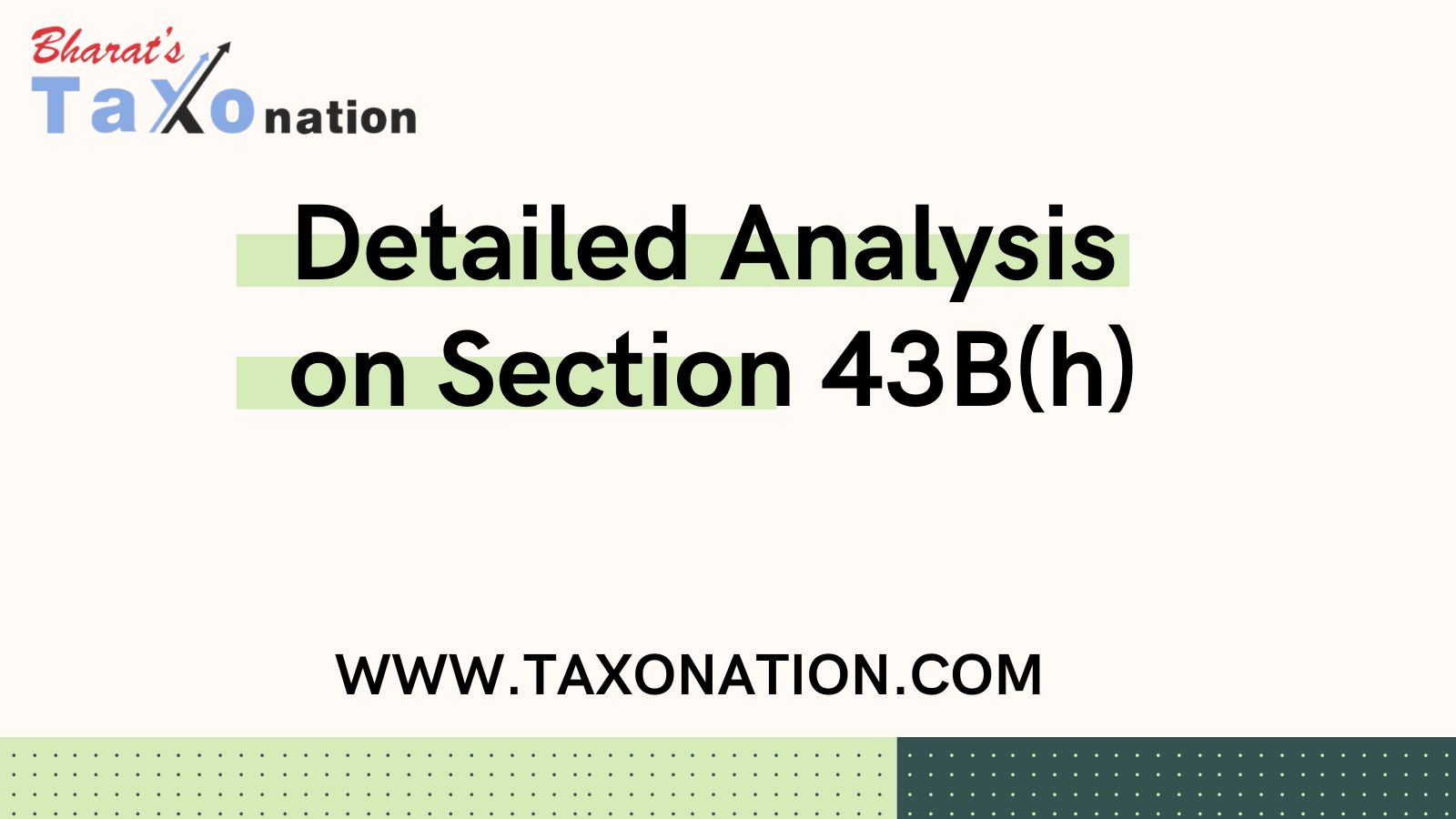
Introduction-
In the realm of business and taxation, adherence to timely payment obligations is crucial for fostering healthy relationships between buyers and suppliers, especially when dealing with Small and Micro Enterprises (MSMEs). The Income Tax Act of India underwent an amendment to Section 43B, introducing new regulations effective from the financial year 2023-2024 aimed at ensuring timely payments to MSMEs. This paper delves into the intricacies of these regulations, emphasizing the importance of payment agreements, timelines, compliance, and the definition of MSMEs under this amended provision.
Background: Amended Section 43B and its Implications-
The amendment to Section 43B of the Income Tax Act in the 2023 budget expanded its scope to include payments made to MSMEs. This amendment signifies a significant step towards promoting timely payments and financial stability for small-scale enterprises operating within India. Prior to this amendment, Section 43B primarily focused on disallowances of certain expenses for tax purposes, but now it encompasses timely payment obligations concerning MSMEs.
Understanding Payment Agreements and Timelines-
One of the key provisions introduced by the amended Section 43B is the requirement for establishing payment agreements between buyers and MSME suppliers. These agreements are essential for specifying the terms and conditions of payment, including the timeframe within which payments must be made. If a buyer purchases goods or services from an MSME supplier and there exists a payment agreement, the buyer is legally obligated to adhere to the specified payment timeline.
According to the amended provision, payments to MSMEs must be settled within the timeframe agreed upon in the payment agreement. In cases where the agreement does not specify a payment timeline, the buyer must ensure that payments are made within 15 days from the date of acceptance of the goods or services. Additionally, if the payment agreement extends beyond 45 days, the buyer is still bound to settle the payment within the maximum limit of 45 days.
Consequences of Non-Compliance with Payment Obligations-
The consequences of non-compliance with payment obligations under Section 43B can be severe for businesses. Unpaid dues to MSMEs beyond the stipulated payment deadlines can lead to these outstanding amounts being considered taxable income for the relevant financial year. This not only impacts the financial statements of the business but also incurs additional tax liabilities that could have been otherwise avoided through timely payments.
For instance, any outstanding payments to MSMEs that remain unpaid beyond February 15 of a financial year will be subject to inclusion in the taxable income for that year. Therefore, businesses must diligently monitor their payment schedules and ensure timely settlement of dues to MSME suppliers to mitigate potential tax liabilities.
Importance of obtaining MSME Declarations-
In order to facilitate compliance with the amended Section 43B, businesses are required to obtain declarations from their suppliers confirming their MSME status. This declaration serves as a crucial document during audits and ensures transparency regarding the classification of suppliers under the MSME category.
During audits, if a business fails to provide MSME declarations for its suppliers, all outstanding creditors will be considered as MSMEs for the purpose of assessing payment obligations. This underscores the significance of obtaining accurate and up-to-date MSME declarations from suppliers to avoid potential compliance issues and tax implications.
Definitation of MSMEs and Applicability of Section 43B-
The definition of MSMEs outlined in the MSME Act determines the applicability of Section 43B to different categories of enterprises. Micro Enterprises are defined as those with an annual turnover of less than 5 crore and investment in plant and machinery not exceeding 1 crore. Similarly, Small Enterprises have an annual turnover of less than 50 crore and investment in plant and machinery not exceeding 10 crore.
It's important to note that Medium Enterprises, although falling within the broader category of MSMEs, are not subject to the provisions of Section 43b(h). This differentiation underscores the legislative intent to prioritize the financial stability and growth of Micro and Small Enterprises through timely payment regulations.
Conclusion-
In conclusion, the amended Section 43B of the Income Tax Act underscores the government's commitment to promoting financial stability and growth within the MSME sector through timely payment regulations. Businesses must proactively establish payment agreements with MSME suppliers, adhere to specified payment timelines, obtain MSME declarations, and ensure compliance with regulatory requirements to avoid adverse consequences such as tax liabilities and non-compliance penalties.
By fostering a culture of timely payments and maintaining transparent supplier relationships, businesses can not only navigate the regulatory landscape effectively but also contribute towards the sustainable growth and development of the MSME ecosystem in India.
CA Kavita Dhingra
Comment:
Post An Query
Due Dates
BookMark
Send Email
BookMark
Send Email